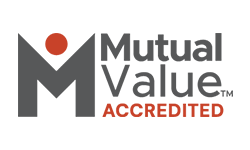According to Scamwatch, around 30% of serious scams are not reported. While there has been progress in scam identification, as evidenced by a 50.9% decrease in reported losses to scams when comparing the first six months of 2024 to 2023; scammers have still managed to swindle $139 million in the first half of 2024 alone.
Scamwatch is dedicated to making it harder for scammers to succeed. This year, Scamwatch’s Scams Awareness Week (26-30 August) focuses on the theme “Share a story. Stop a scam.” This campaign urges all Australians to take an active role in combatting criminal scammers by sharing their experiences. By encouraging everyone to speak up to report scams and share their stories, we can collectively work to avoid, identify, report, and recover from scams, ensuring no one has to face these challenges alone.
“We all have a part to play in shutting down criminal scammers. By talking to each other, we can make sure no one is alone in the fight against scams. People who’ve had money stolen should not feel shame when they’ve been targeted by sophisticated criminals,” ACCC Deputy Chair Catriona Lowe said.
Scam Prevention
A scam is when someone deceives you into providing personal or financial information in order to steal from you.
Here are some helpful tips to keep yourself protected:
STOP
Take the time to ask yourself “does this seem right?” in any situation where you are asked to share any personal or financial information. Scammers often try to pressure you into acting quickly to catch you off guard. They may also try to use guilt and anxiety to manipulate you into acting against your better judgement.
CHECK
Scammers may pretend to be from organisations that you know and trust, such as the government or your bank. If you notice something suspicious, don’t respond. Instead, call the official phone number of the organisation to verify the legitimacy of any communications.
REPORT
Scams can be reported to the organisation the scammer is impersonating, or via the Scamwatch website. The more we talk, the less power scammers have.
SHARE
Talk to your friends and family about your experience so that no one feels like they have to go through it alone.
Need help?
If you believe someone has gained access to your personal information, even if the scam appears unrelated to your finances, you should contact your bank immediately. A timely response can be critical in giving you the best chance to stem any loss.
- If you have concerns about your G&C Mutual Bank account, contact us on 1300 364 400.
- If the scam occurred on social media or a legitimate website, report it to the platform involved. For scams on Facebook, Messenger, WhatsApp and Instagram, see this step-by-step guide for reporting scams on Facebook services.
- You can find out how scams work, how to protect yourself, what to do if you’ve been scammed or report a scam to the Australian Competition and Consumer Commission (ACCC) via the Scamwatch website.

The source of the key statistics outlined in this article are based on reporting’s by Scamwatch. Please visit their website for further details.




